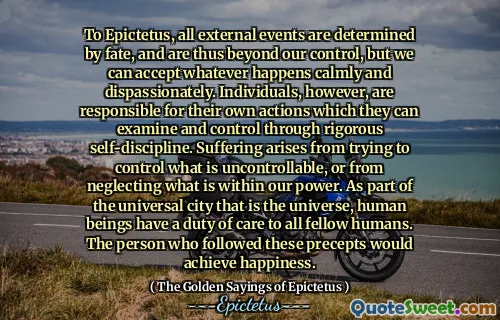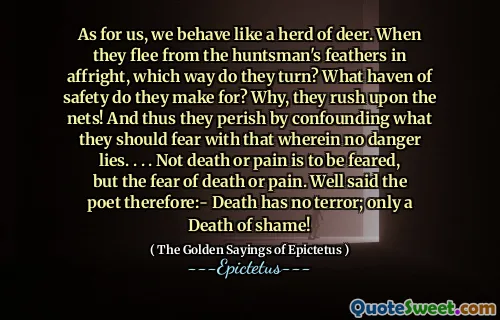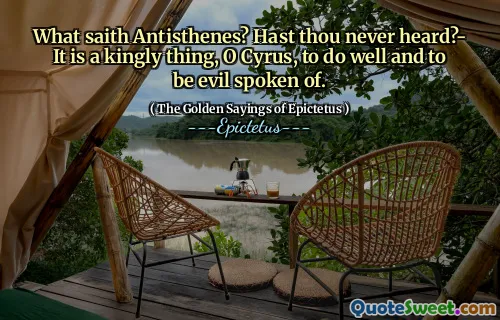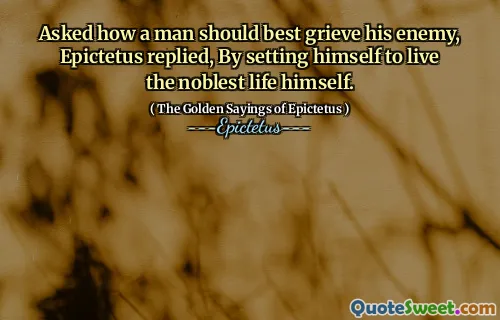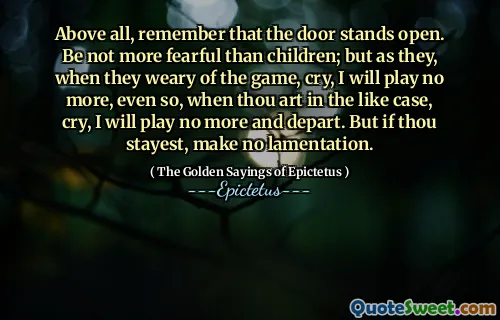
As for us, we behave like a herd of deer. When they flee from the huntsman's feathers in affright, which way do they turn? What haven of safety do they make for? Why, they rush upon the nets! And thus they perish by confounding what they should fear with that wherein no danger lies. . . . Not death or pain is to be feared, but the fear of death or pain. Well said the poet therefore:- Death has no terror; only a Death of shame!
📖 Epictetus
In this passage, Epictetus uses the metaphor of a herd of deer to illustrate how people often react to fear. Just as the deer flee blindly and mistakenly charge into danger rather than seeking safety, individuals may panic and make poor choices under the influence of fear. They may confuse what truly threatens them, leading to their downfall. Epictetus suggests that instead of fearing the actual events of death or pain, people's irrational fear of those events is what truly hinders them.
Epictetus emphasizes the importance of perspective on fear, arguing that death itself should not be feared, but rather the shame associated with facing it poorly. This perspective encourages individuals to confront their fears and not let the anticipation of pain or failure dictate their actions. By acknowledging that the fear of these experiences is often greater and more damaging than the experiences themselves, one can find a sense of freedom and empowerment to live without the paralyzing grip of fear.

